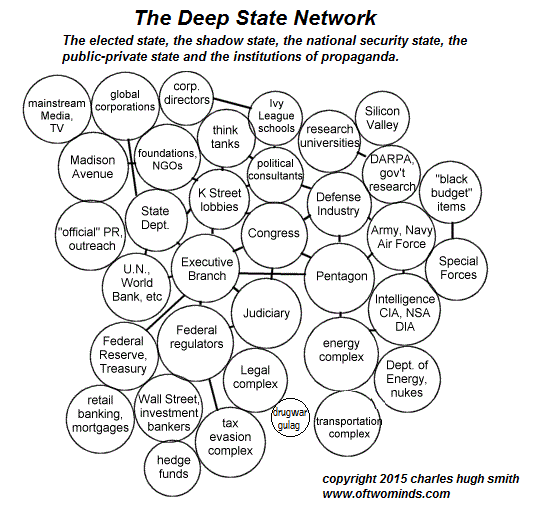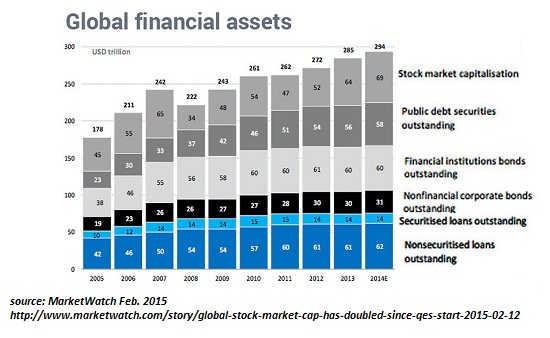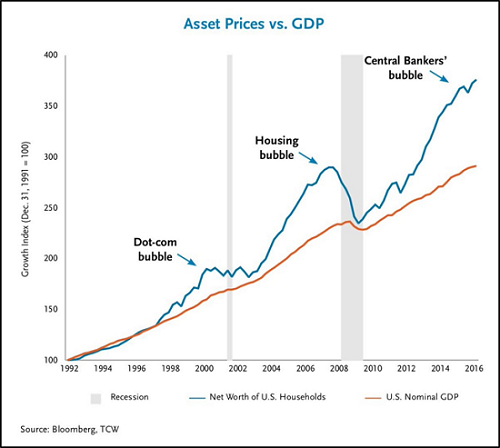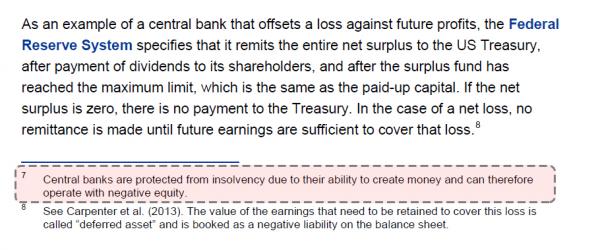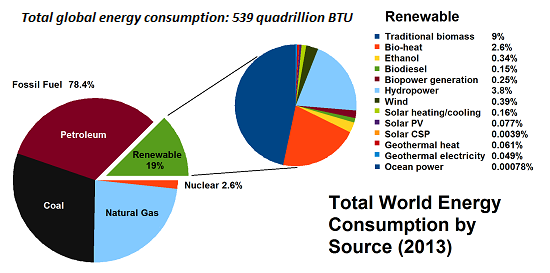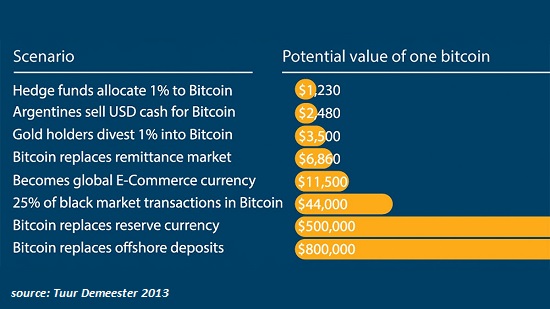It now seems evident that the Neoliberal Camp of the U.S. Deep State is highly vulnerable on an individual basis.
I tend to notice things like a year-old blog entry suddenly getting thousands of page views. The essay that received a surge of recent interest:
Is the Deep State at War--With Itself? (December 13, 2016).
I'm reprinting the essay below for those interested, as nothing has emerged to change the conclusions.
That in itself reveals that the internecine war within America's Deep State is if anything heating up as those attempting to hang a "Russian collusion" narrative on their Deep State opponents have failed to produce any proof of this collusion despite a year of effort.
Then all of a sudden big political donor Harvey Weinstein gets taken down for behaviors that have been well-known within the circles of power for 20+ years. So what changed? Why did Mr. Weinstein's protective wall suddenly fail after serving him so effectively for decades?
But Mr. Weinstein was only the first to fall. Now high-profile figures across the mainstream media are toppling like dominoes. Doesn't it seem a bit peculiar that all these Protected Privileged are suddenly being exposed, disgraced and removed from positions of influence and power?
Maybe it's just random coincidence, but I doubt it. It has the scent of an intentional covert campaign. It's well known that the mainstream media and Hollywood has been in bed with the security agencies for decades, and so it seems non-random that suddenly all these big-shots have lost their Protected Privileged Status more or less at once.
Not to put too fine a point on it, but it looks like those who played on the losing side's team (or cheered from the sidelines) just had their privileges revoked.
Were we to speculate on the meaning of this first-sweep of the media: how about a campaign to strip the failed narrative of its media supporters? Now that everyone sees the lay of the land, the Second Stage will be to collect all the dirty laundry that's been hidden away out of fear, and then methodically expose, disgrace and remove the next layer of media/entertainment supporters of the failed narrative.
Stage Three will be to collect and release the same sort of evidence against the political class. We can discern evidence for this campaign in the number of candidates who suddenly declare they won't be running for re-election for personal reasons, or to "move on to other projects," etc.
As this campaign moves up the wealth-power pyramid, we'll see more big shots resigning or retiring. Those that resist will find all their dirty laundry is suddenly being made public.
Isn't it interesting that PBS and the rest of the mainstream media went all out to support Hillary Clinton's recent media campaign to revive the "Russian collusion" narrative via her new book, yet the campaign fell flat with the American public?
This is remarkable: a highly coordinated, massive media campaign failed to re-energize the "Russian collusion" narrative, and may have actually backfired by drawing renewed interest in Russian dealings with the Clinton Foundation during Hillary's term as Secretary of State.
I hesitate to draw a military analogy, but it certainly feels like a replay of the Battle of Midway, in which an over-confident Japanese Imperial Navy was poised to declare victory until the cream of its fleet, four aircraft carriers, were sunk or disabled in the space of a few moments by U.S. Navy dive bombers.
The grand attack that was supposed to reverse these catastrophic losses--Hillary's book and accompanying media blitz--fizzled, and that failure clearly eroded the defenses of those who supported this counter-attack by the demoralized but still powerful Neoliberal Camp of the Deep State.
It now seems evident that the Neoliberal Camp of the U.S. Deep State is highly vulnerable on an individual basis: all too many over-confident big-wigs appear to have counted a bit too much on their Protected Privileged Status being permanent.
Collectively, they appear to have forgotten, perhaps as a result of their titanic hubris, that only the paranoid survive.
Various cliques within the 3-Letter Agencies are frantically trying to protect their satraps and benefactors, but the tide has turned and all the threats and pay-offs that defended the Protected Privileged so effectively for decades are no longer working.
Now the Protected Privileged are running scared, as well they should, for the opposing camp within the 3-Letter Agencies has all the dirty laundry it needs to bring down the Neoliberal Camp, one disgraced big-shot at a time.
The way of the Tao is reversal.
Here's last year's essay on the Deep State conflict:
Is the Deep State at War--With Itself?
December 14, 2016
The recent pronouncement by the C.I.A. that Russian hackers intervened in the U.S. presidential election doesn't pass the sniff test--on multiple levels. Let's consider the story on the most basic levels.
1. If the report is so "secret," why is it dominating the news flow?
2. Why was the "secret report" released now?
3. What actual forensic evidence is there of intervention? Were voting machines tampered with? Or is this "secret report" just another dose of fact-free "fake news" like The Washington Post's list of 200 "Russian propaganda" websites?
4. The report claims the entire U.S. intelligence community is in agreement on the "proof of Russian intervention on behalf of Trump" story, but then there's this:
"The C.I.A. presentation to senators about Russia’s intentions fell short of a formal U.S. assessment produced by all 17 intelligence agencies. A senior U.S. official said there were minor disagreements among intelligence officials about the agency’s assessment, in part because some questions remain unanswered."
Given that the N.S.A. (National Security Agency) was so secret that its existence was denied for decades, do you really think the NSA is going to go public if it disagrees with the C.I.A.?
Given the structure of the Deep State and the intelligence community, "minor disagreements" could well mean complete, total disavowal of the C.I.A.'s report.
That this is the reality is suggested by the F.B.I.'s denunciation of the report's evidence-free, sweeping conclusion:
5. The supposed interventions clearly fall under the purview of the NSA. So why is the C.I.A. going public in what is clearly a politicized report intended to influence the public via massive, sustained coverage in the mainstream media?
6. Notice the double standard: so when the U.S. attempts to influence public opinion in other nations, it's OK, but when other nations pursue the same goal, it's not OK?
7. What are we to make of the sustained campaign to elevate "Russian hackers and propaganda" from signal noise to the deciding factor in the U.S. election?
8. Russian hacking and attempts to influence American public opinion are not new. The intelligence agencies tasked with protecting American cyberspace have long identified state-sponsored hacking from Russia and China as major threats. So why, all of a sudden, are we being told the Russians successfully influenced a U.S. election?
What changed? What new capabilities did they develop?
9. And most importantly, what evidence is there that Russian efforts affected the election? Were digital fingerprints found on voting machine records? Were payments to American media employees uncovered?
Shouldn't statements purported to be "fact" or the "truth" be substantiated beyond "trust us, an agency with a long history of failed intelligence, misinformation and illegal over-reach"?
10. Doesn't it raise alarms that such a momentous accusation is totally devoid of evidence? If you're going public with the conclusion, you have to go public with at least some of the evidence.
Here's the media blitz and some skeptical response:
Longtime readers know I have proposed a major divide in the Deep State--the elements of the federal government which don't change regardless of who is in elected office. This includes the intelligence community, the Pentagon, the diplomatic and trade infrastructure, Research and Revelopment, and America's own organs of media "framing" and "placement."
More recently, I wondered if the more progressive elements of the Deep State recognized the dangers to U.S. security posed by the neocons and their candidate, Hillary Clinton, and had decided to undermine her candidacy:
In other words, it's not the Russians who sabotaged Hillary--it's America's own Deep State that undermined her coronation. It wasn't a matter of personalities; it was much more profound than that. It was about the risks posed by the neocon strategies and policies, and just as importantly, the politicization of the intelligence network.
And this is precisely what we discern in the C.I.A.'s unprecedented and quite frankly, absurd "secret report:" a blatantly politicized "report" that is not supported by any evidence, nor is it supported by the other 16 intelligence agencies. (Silence doesn't mean approval in this sphere.)
We can now discern the warring camps of the Deep State more clearly. On the one side is the C.I.A., the mainstream media, and the civilians who have feasted on wealth and power from their participation in the neocon's Global Project.
On the other side is the Defense Department's own intelligence agencies (D.I.A. et al.), the N.S.A., the F.B.I. and at least a few well-placed civilians who recognize the neocon agenda as a clear and present danger to the security of the nation.
From this perspective, the C.I.A.'s rash, evidence-free "report" is a rear-guard political action against the winning faction of the Deep State. The Deep State elements that profited from the neocon agenda were confident that Hillary's victory would guarantee another eight years of globalist intervention. Her loss means they are now on the defensive, and like a cornered, enraged beast, they are lashing out with whatever they have in hand.
NOTE: Contributions/subscriptions are acknowledged in the order received. Your name and email remain confidential and will not be given to any other individual, company or agency.
|
Thank you, Robert J. ($50), for your superbly generous contribution to this site-- I am greatly honored by your support and readership.
| |
Read more...
